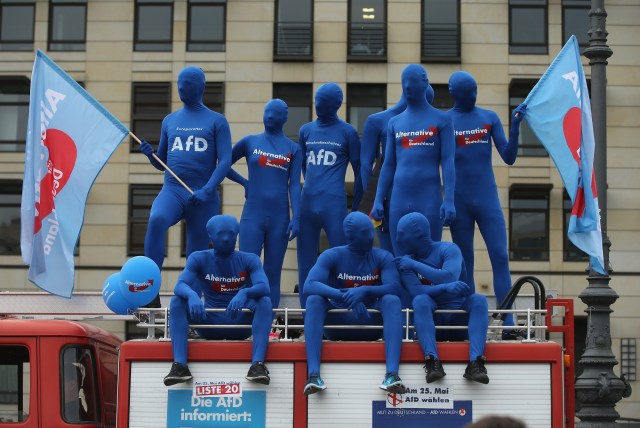Credit: Sean Gallup/Getty Images

Yugoslavia was said to be one country with two alphabets, three religions, four languages, five nationalities, six republics and seven neighbours.
In fact, it was a lot more complicated than that – especially in the 1990s, when the country collapsed into ethnic war.
Today there are seven sovereign states within the borders of what used to be Yugoslavia – or eight, if you separate the two main components of Bosnia and Herzegovina (which, confusingly, aren’t Bosnia and Herzegovina).
Writing for the Guardian, Ivan Krastev argues that the bloody demise of Yugoslavia helped to precipitate an ideological ‘divorce’ between liberals and nationalists in the new democracies of the former Communist bloc:
“Remember how nationalists and liberals were allies in the overthrow of communism in 1989. Central European liberals were aware of the political appeal of post-communist nationalism, so they did a lot to shape it and soften it. Appealing to national sentiment was critically important as a way of mobilising society against the communist regimes. Poland’s Solidarity movement was not liberal, but a mixed – social and nationalist – coalition that endorsed the values of liberal democracy.”
This is a crucially important point. Indeed, the history of liberal nationalism goes back much further – it was, for instance, a vital force in the European revolutions of 1848.
Krastev argues that “the Yugoslav wars made it impossible for liberals to define liberalism as anything but anti-nationalism”. However, I’m not sure, that “impossible” is quite the right word. Looking back at what happen in Yugoslavia, it strikes me that it was just as possible to conclude that it’s coercive federalism that’s illiberal.
One thing is sure, the anathematisation of nationalism has had unforeseen, long-term consequences:
“Over time, however, the equating of liberalism with anti-nationalism came at a cost. It eroded electoral support for liberal parties, making them totally dependent on the success of economic reforms and depriving them of powerful nationalist symbols.”
As I wrote last month, the most significant development in European populism is not the disruption caused by populist protest parties in western Europe, but the emergence of a solid bloc of populist governments across most of central Europe. Never mind the election result in Sweden – just look at what’s happening in Italy where the hard-right League has nearly doubled its support since forming a coalition government; or in the former East Germany – where a surge in support for the AfD now has it polling in first place.
Krastev makes a strong case for seeing the “undeclared war between liberals and nationalists” as foundational to the rise of populism. However, the process has been helped along by the actions of an EU establishment that has learned entirely the wrong lesson from the break-up of Yugoslavia and adopted its own policy of coercive federalism.
Of course, in the EU’s case, the coercion is non-military. Economic and political weapons have been used instead – just ask the people of Greece.
The advocates of federalism emphasise just how much Europeans have in common. And it’s true – we share a continent and a civilisation, so how could it not be? And yet how could such affinities not be even stronger within the shared history, interests and culture of a nation?
We may love the communities we live in, but most of us love our families more. Attempting to overturn a very human order of affections and loyalties is not only cruel, it is also likely to fail – and fail badly.










Join the discussion
Join like minded readers that support our journalism by becoming a paid subscriber
To join the discussion in the comments, become a paid subscriber.
Join like minded readers that support our journalism, read unlimited articles and enjoy other subscriber-only benefits.
Subscribe